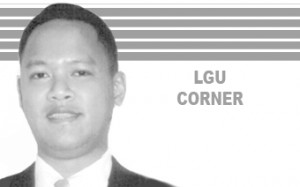 There is really something wrong in the way this controversial graft case against top provincial officials has been handled by the Office of the Ombudsman.
There is really something wrong in the way this controversial graft case against top provincial officials has been handled by the Office of the Ombudsman.
I am referring to the current prosecution of provincial government officials led by Rep. Rene Relampagos, Gov. Edgar Chatto, et. al. in connection with the privatization of the Provincial Electric System and the Provincial Water System.
This controversy has spanned more than fifteen years already, and the Ombudsman, the public prosecutor in this graft case, has just filed a criminal Information against the accused last October 23, 2015.
This circumstance alone, betrays the anomaly in the hands of the public prosecutor, the Ombudsman.
Imagine, a criminal graft complaint was filed in the Ombudsman in 2000. It was only on October 23, 2015 that an Information was filed in court!
That’s fifteen years.
What does that speak of our public prosecutors?
Why does it take fifteen long years for a public prosecutor, the Ombudsman, to file an Information?
It could of course be possible that fault can be attributed to the parties’ dilatory tactics.
But in this case, the criminal complaint was already recommended for dismissal as early as February 2001.
After this, the case apparently underwent a sabbatical leave for seven years, until July 2008 when the then acting Ombudsman affirmed the dismissal.
Why does it take more than seven years for the Ombudsman to affirm a dismissal?
Seven years?
Not only that.
From 2008, the time the dismissal was affirmed, the case snored its way to Siberian hibernation for another six years, before the current Ombudsman reversed the dismissal on September 16, 2014.
Six years?
A total of thirteen years in suspended animation?
What kind of preliminary investigation is this?
The truism rings true that justice delayed, is justice denied.
I will not touch on the merits of the case because that is irrelevant in this discussion.
I will also not touch on the current Ombudsman’s ratiocination that the affirmation of dismissal by the former deputy Ombudsman was void.
But looking at the total length of time that the preliminary investigation entailed, like viewing the forest instead of the trees,  just makes me scratch my head.
It takes thirteen years to conduct a preliminary investigation?
(This should make a good prefatory headline in a petition to the Supreme Court)
This matter brings to fore one of our fundamental rights in our Constitution.
The Bill of Rights, Section 16 Article III guarantees that “All persons shall have the right to a speedy disposition of their cases before all judicial, quasi-judicial, or administrative bodies.â€
We understand that due to the number of cases pending with the Ombudsman, reasonable delay may happen.
But in a period of thirteen years, absent the pendency of interlocutory matters, it is simply baffling to imagine how this can be accepted as reasonable delay.
We indeed hope that the Supreme Court will take a look at this matter and see whether or not a thirteen year undisturbed hiatus in the prosecutorial process is justifiable.
The Supreme Court has ruled in the past that when the preliminary investigation proceedings take a protracted amount of time to complete, it is tantamount to a violation of the right to speedy disposition of cases.
To quote the Supreme Court:
“Verily, the Office of the Ombudsman was created under the mantle of the Constitution, mandated to be the “protector of the people” and as such, required to “act promptly on complaints filed in any form or manner against officers and employees of the Government, or of any subdivision, agency or instrumentality thereof, in order to promote efficient service.”
“This great responsibility cannot be simply brushed aside by ineptitude.
“Precisely, the Office of the Ombudsman has the inherent duty not only to carefully go through the particulars of case but also to resolve the same within the proper length of time.
“Its dutiful performance should not only be gauged by the quality of the assessment but also by the reasonable promptness of its dispensation.
Thus, barring any extraordinary complication, such as the degree of difficulty of the questions involved in the case or any event external thereto that effectively stymied its normal work activity – any of which have not been adequately proven by the prosecution in the case at bar – there appears to be no justifiable basis as to why the Office of the Ombudsman could not have earlier resolved the preliminary investigation proceedings against the petitioners.â€
Amen. (By Atty. Jay I. Dejaresco)
